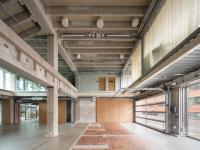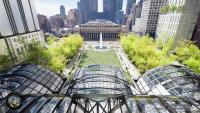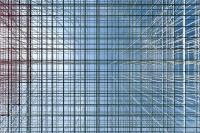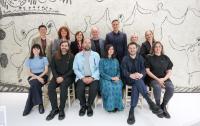Drawer Balcony House
Tokyo, Japan
The balcony is protruded toward the front road, creating a garden-like space in the air.
It’s a 6.5-tatami mat or 12 sqm space with privacy and security in mind, where you can use in many ways such as enjoy outdoor dining, place pots of plants, drink beer in the evening breeze, or pull out a chair and read a book on a sunny day. The owner’s beloved car fits nicely under the balcony.
The balcony, which is directly accessed by an external staircase, also function as the entrance porch. The space continues to extend from the entrance porch to 1st floor hall, dining room, living room stepping down at each space and gradually descending as move further into the house. The entire space of 1st floor is 31 tatami mat or In total, the area is 31-tatami mat or 57 sqm, and the ceiling height of the living room at the far end is 3.1 m.
The first and second floors are connected through open staircase with bookshelves and storage which cuts off the scene diagonally. The entire house is connected by skip floors, allowing the four members of the family to feel each other’s presence, and at the same time, the interior glass windows in the private rooms on the second floor can be opened and closed to adjust the comfort level.
The site had a frontage of 6 m and an area of 99 sqm, and was surrounded by similar lots. Given the regulatory conditions of the vicinity, the outline of the detached houses in the neighborhood would inevitably be similar to one another, but there was some flexibility left in the balcony, so we wanted to make the most of the lot and characterize the house by the way we define the balcony.
Across the street stands a low-rise nursing home with well-trimmed trees, and when seen from the house, it has a pleasantly open view to the sky. Therefore, the protruding balcony side walls are gradually lowered toward the tip of the balcony to 1.1 m to create openness which is low enough to view the plants across the street. The nursing home had just been built, so the scenery was not expected to change for a while, which was one of the reasons the owner purchased this site. Since the construction was completed, various plants have been brought to the balcony, creating a lively atmosphere.
The first floor is flanked by neighboring houses on both sides, but the second floor receives plenty of sunlight through the roof of the neighboring house, and from there, soft light reaches the first floor through the atrium. If you open the window, the wind will pass from the first floor to the second floor. In order to enhance the openness of the space, the visible pillars supporting the second floor were removed and replaced with a structure supported by steel-framed stairs.
The interior finish has a sense of continuity with the exterior, while materials such as tile, wood, cement, paint, and linoleum are carefully picked for floors, walls, and ceilings. The owner was very keen on selecting materials, so the combination of materials was carefully considered. We wanted to create a depth in the space which gives a simple and unified impression as a whole, but when focused on details, a variety of expressions and uses of materials would surface.
The exterior walls, which had taken the longest time to finalize, are wrapped in a textured cement-based cladding, and the walls that were “drawn out” were finished with a different material.
In order to create sharp impression where the exterior wall materials change, we consulted with craftsmen on the site to use a handmade metal sheet parts especially for the corners instead of using factory made parts.
While the outline of the house blends in the vicinity, we tried to give the house a unique presence and coziness.
- Architekten
- Akio Nakasa / Naf Architect & Design
- Standort
- Tokyo, Japan
- Jahr
- 2022




























